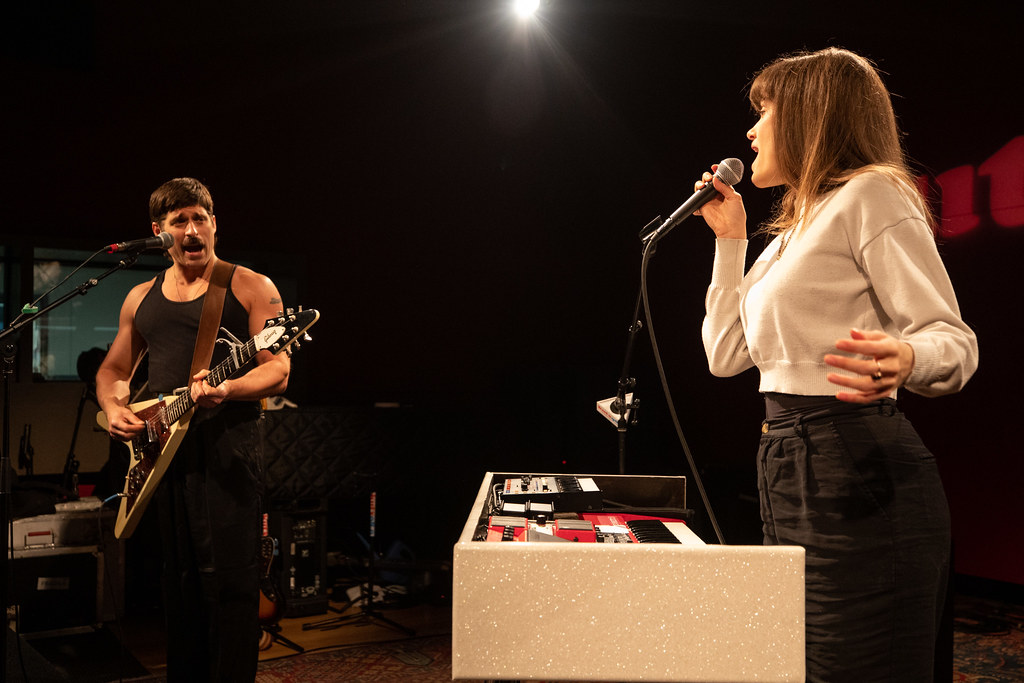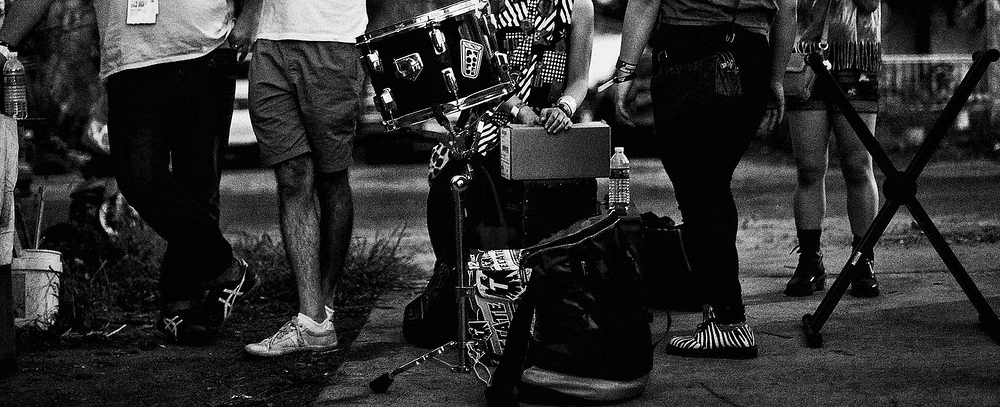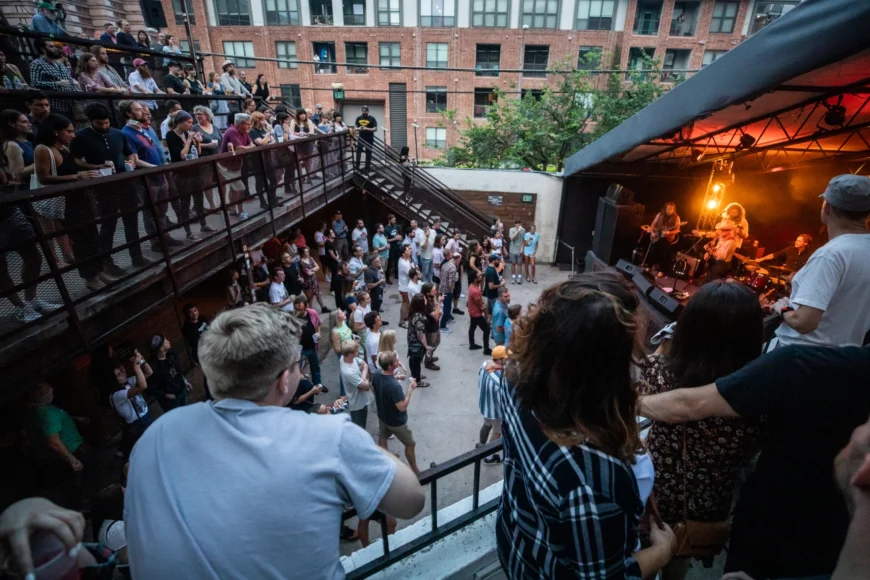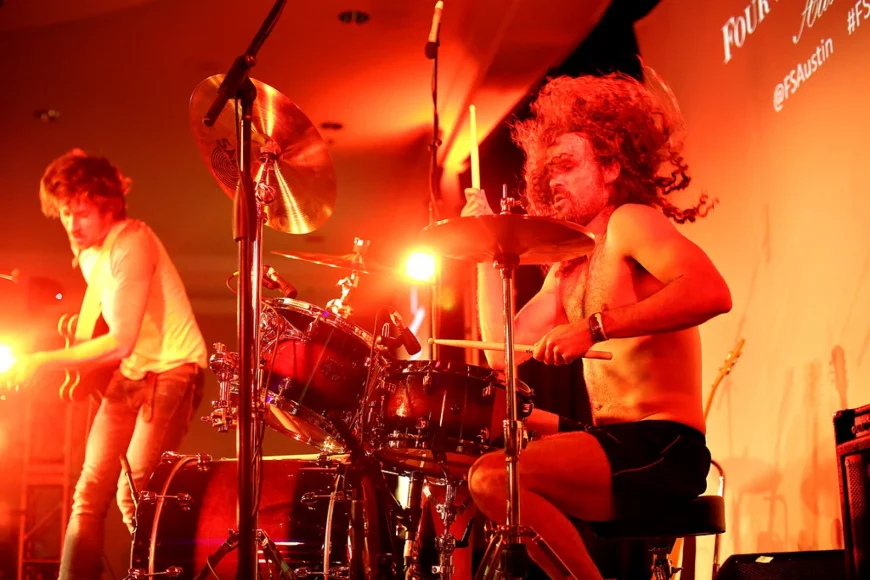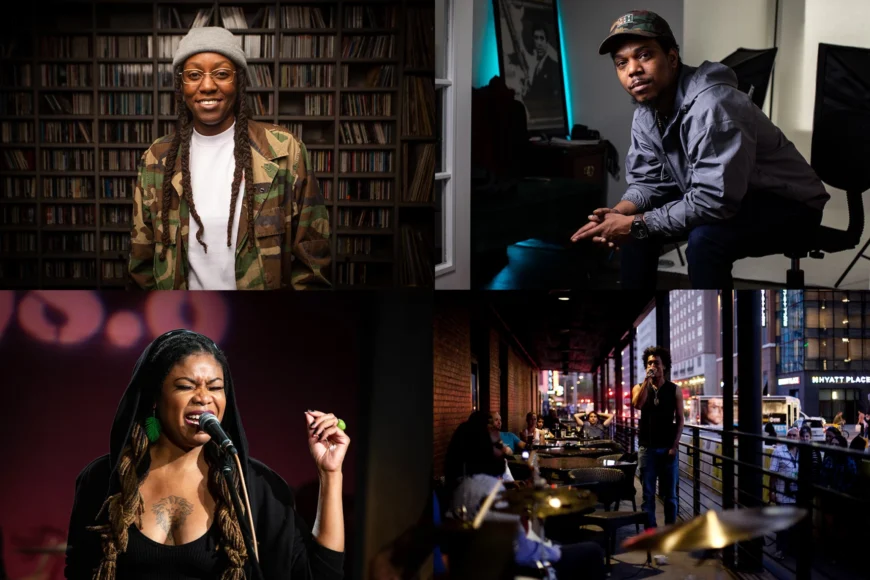Does touring still work in a 2023 landscape more challenging than ever?
By Jeff McCord
With hundreds of bands and solo acts making their way to Austin for South by Southwest, it seems a good time to reflect on how things are out there. What’s it like to be a musician on the road in 2023?
These are fraught times. Streaming has all but separated everyone but the top level of acts from album sales income. Inflation has sent fuel, car and hotel prices through the roof. Venue consolidation and corporization have resulted in fewer places to play, and a smaller slice of the bottom line.
I started thinking about this months ago when I read the note Santigold posted to social media.
“As a touring musician,” she began, “ I don’t think anyone anticipated the new reality that awaited us. After sitting idle (not being able to do shows) for the past couple of years, many of us like everyone else, earning no or little income during that time, every musician that could, rushed back out immediately when it was deemed safe to do shows. We were met with the height of inflation—gas, tour buses, hotels, and flight costs skyrocketed—many of our tried-and-true venues unavailable due to a flooded market of artists trying to book shows in the same cities, and positive test results constantly halting schedules with devastating financial consequences. All of that on top of the already-tapped mental, spiritual, physical, and emotional resources of just having made it through the past few years.”
No doubt her note provoked a variety of reactions. For an artist on a major label with a good deal of success, a lot of indie up-and-comers might have looked at her message as out of touch. But her thoughts seemed to really resonate.
“I have tried and tried, looked at what it would take from every angle, and I simply don’t have it. I can’t make it work.”
And my thoughts were, if she can’t make it work, how can anyone else? There’s hyperbole at work here, of course. There are musicians at her level and beyond who are making things connect on the road. And Santigold herself has begun to play a few shows. But her note laid bare some real pain. What does it take, mentally and financially, to head back out there in 2023?
I began asking musicians, our KUTX artists of the month, and touring musicians I interviewed, about their road experiences. Time was, most anyone getting started was willing to hit the road and try to cobble together a few shows. But this seemed to be happening less and less.
I brought up Santigold’s message to our Pause/Play podcast producers, Miles Bloxson and Elizabeth McQueen, and found out that they too had been thinking about a touring episode. So we agreed to a collaboration; we’d pool our ideas and interviews, and try to determine the lay of the land. Turns out, it’s different for almost everyone.
I’m not sure people realize how, you don’t get insurance. Your health is pretty taxed. I had to buy a minivan so we could tour and not have to rent a vehicle. That’s what I drive as my daily car and I work other jobs and, this is because we love it. But it’s a challenging life choice.”
Janet Weiss of Quasi
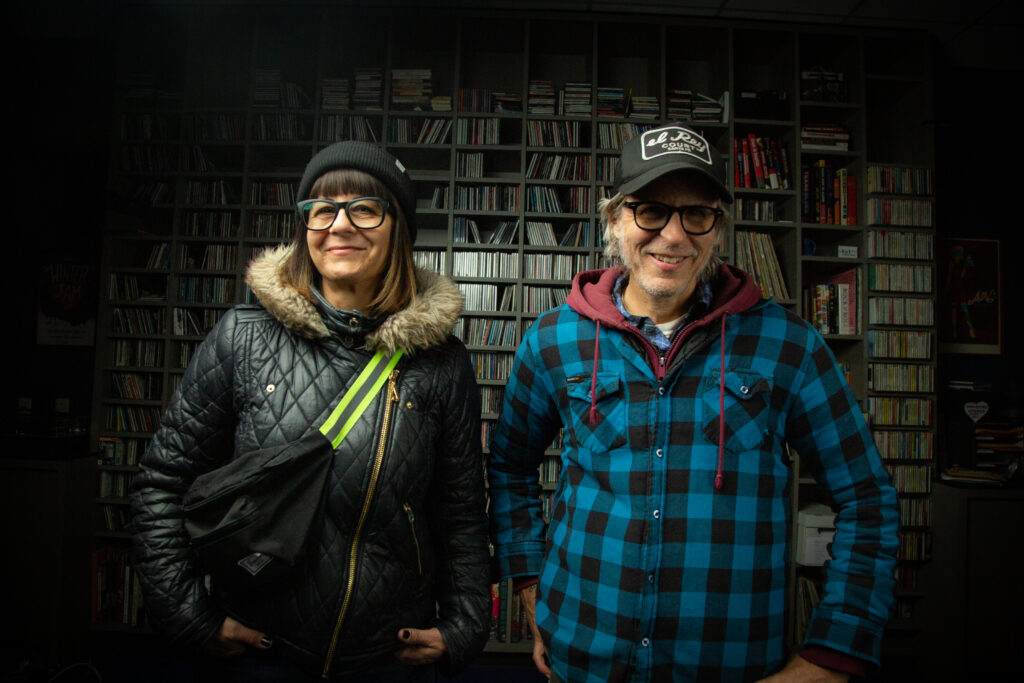
Take the indie rock duo Quasi, who just rolled through Austin a few weeks back. Janet Weiss and Sam Coomes have been making music as Quasi since 1993. They are on their first major tour in a decade, and I asked them what changes they are seeing.
“It’s a lot more expensive,” says Coomes.
Weiss agrees. “It’s really expensive. Yeah, it’s everything. Hotels… With streaming taking away a major form of revenue for bands, touring has become harder. You really have to bring a lot of merch. The venues want to take a percentage of your merch. There’s not as much of an underground scene of clubs, a network of routing that would be really kind of obvious. Things are changing a lot. And the growth of the corporate small venues makes it hard on bands. It’s like a bottom line kind of thing instead of like a venue that’s being run for just the sheer love of music.”
Coomes continues. “We’ve played a range of clubs already from total DIY teenage punk clubs to large corporate nice clubs. And, you know, our approach is always the same and the staffs are always, usually, always nice..”
“Yeah,” Weiss agrees, “the day-to-day is, is similar. It’s just harder to break even. I’m not sure people realize how, you don’t get insurance. Your health is pretty taxed. I had to buy a minivan so we could tour and not have to rent a vehicle. That’s what I drive as my daily car and I work other jobs and this is because we love it. But it’s a challenging life choice.”
“We sound like we’re complaining,” says Coomes, “but I’m actually grateful to be able to still do this at all, really, given the challenges. In a lot of ways we’re we’re lucky.”
He’s right. Despite the challenges, they are far ahead of brand-new acts. They’ve got a record deal with Sub Pop for their new album, Breaking the Balls of History. And a 30-year career to fall back on. But the road seems to throw up challenges for artists of all levels.
I didn’t realize how hard I was being on my body by touring.
Ali Holder
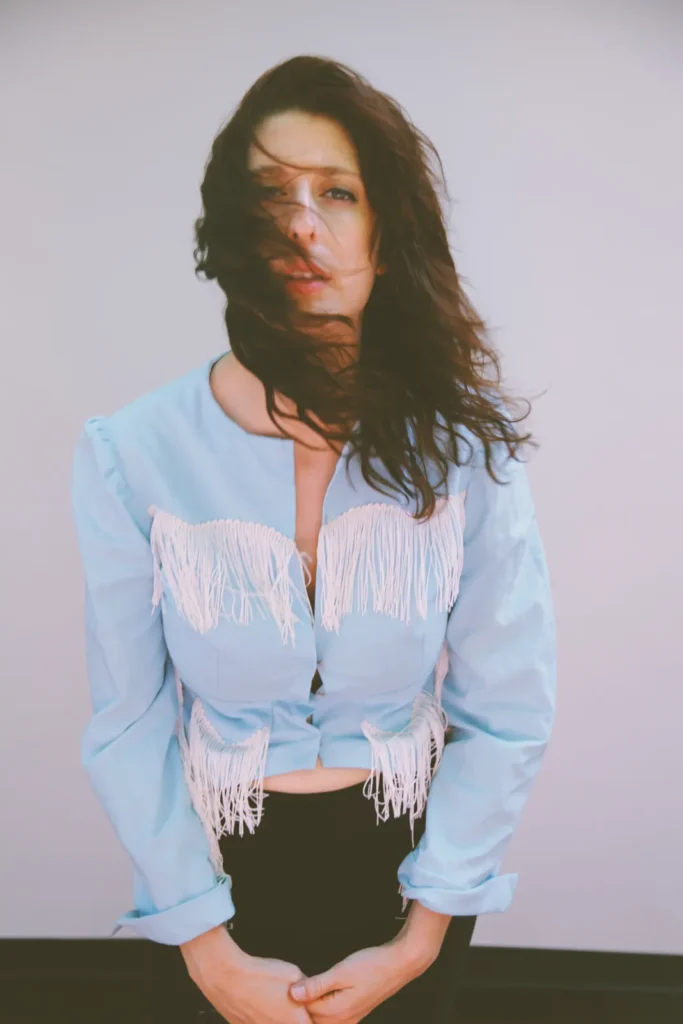
For Austin singer/songwriter Ali Hoilder, the pandemic brought on an epiphany of sorts. She describes her pre-COVID touring experiences.
“A lot of cross-country trips playing like one or two anchor (lucrative) gigs and then like a million shitty gigs, just to get me from A to B. I was touring full-time. I was starting to make money. The first several years I made no money and then I would break even for a couple of years, and then the last probably three or four years, I started making money. So in my mind, I was like, I’m doing great.”
“I think before the pandemic I had this idea of like ‘making it’, which is interesting. I didn’t realize how hard I was being on my body by touring. I would never pay for a hotel room because that’s what like 100, 150 bucks a night. And it’s like keeping food in your car that won’t expire. So eating a lot of peanut butter and jelly sandwiches. If something happens to your guitar, you have to end up renting one or borrowing one. And then you have to get your oil changed on the road, which is my least favorite thing in the whole world. It’s just everything. And it’s like if you get sick and you’re insurance doesn’t work outside of Texas, it’s just a lot of like really logistical things that you don’t think of, or if your gear gets stolen. Oh my gosh, it was really unsafe for a long time. I was very broke, but I was doing what I loved.”
So when the pandemic hit, Holder says, she slept for six months. And then she made a big life decision.
“I took a really big risk and paid for business and finance coaching. It was six months of my life and it was unbelievable. It was the most life-changing thing I ever did. Sounds culty of me to say that, but it is very, very true. Once you decide to up your standards or take your self-worth more seriously, or believe that you provide a service or provide a creative outlet for people, [you feel] that the universe kind of has your back.”
Her work as a digital marketer has provided her with a revenue stream. She’s still working her music career, but the financial pressure has lifted.
“The pandemic really taught me quality over quantity, and I didn’t have that mindset before. Because I do other stuff for work now, I have never been in love with music more, because I am not playing three-hour winery gigs every week. I don’t tour as much, which is kind of a bummer, but it’s also it’s better, you know? Now [touring] looks like a festival in Wisconsin this summer. And a writing residency program the week before that. It’s more intentional. Instead of just driving from Wisconsin to Montana, [thinking] where can I play in North Dakota? Where can I play in Wyoming? Now I’m just going to drive straight through.”
Holder’s decisions obviously won’t work for every musician, but her actions do highlight a need for everyone out on the highways in 2023: adaptability.
“I’m making better money now than I was before. But part of that is because I think I’m doing it smarter. I’m playing for people that already like me and not doing it Tuesday night at some bar to hopefully make 200 bucks to get to the next town.
Matt the Electrician on playing house concerts
Take Matt Sever, known here in Austin as Matt the Electrician. Matt’s been an established singer/songwriter in Austin since 1996, and in that time, he’s seen a lot of changes. Yet no one was prepared for what happened in 2020.
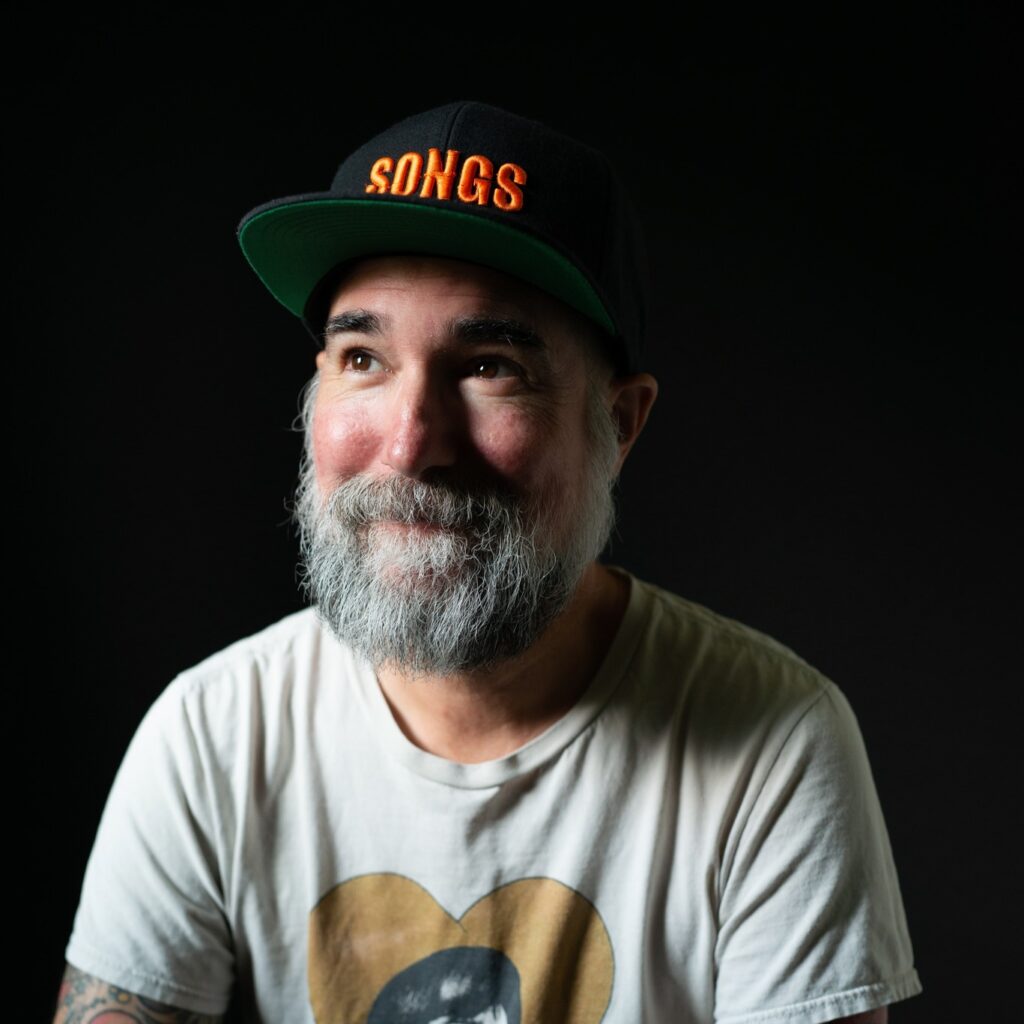
“I remember talking to a friend,” Matt explained, “and when everything got canceled, there was that moment where – it was in March, right? – everybody was rescheduling things for June. Maybe it was busywork. I was so skeptical of it. I thought, there’s no way, this is like a year or two. But I had friends who are agents and they said, ‘well, it’s just what you’ve got to do. You rebook for June, then you rebook for October ,and that all kind of overwhelmed me. That idea of whatever happens whenever this all comes back, it’s already a very competitive industry. You’re not fighting, but you’re working really hard to get every little half-rung on whatever ladder you’ve imagined in your mind. And I already don’t like that. So the idea of whenever this comes back, everyone is going to release all the records they had in the can and everyone who’s not on the road is all going to tour at the same time…I’m already a little under the radar. And I thought, you know what? I’m just going to dig down a little deeper and go off the radar.”
Matt, pre-COVID, described his touring situation as 60% clubs, 40% house concerts (concerts paid for and organized by homeowners, typically featuring one or two musicians).
And now?
“It’s 90% house concerts or private shows. There are formal ones where there are people who have a series and once a month they’ll do a show in their house and they sell tickets and they have drinks and snacks and people after, you know, reserved seats and all of that, all the way to the other end of the spectrum, which is if you have a fan that really likes you, they’re willing to pay a certain amount of money for you to go into their house and play in their living room for the two of them or the four of them or ten of their friends. And then there’s a handful of clubs that I still like playing that I have good relationships with where I don’t feel like I’m having to compete with everybody or their mother.”
Sever’s attitude shift is working.
“I’m making better money now than I was before. But part of that is because I think I’m doing it smarter. I’m playing for people that already like me and not doing a Tuesday night at some bar to hopefully make 200 bucks to get to the next town. In the old days when my kids were little, I was trying to pack everything into two weeks max, so that I could get home. Now with all the kids out of the house, I can take that same number of gigs and stretch it to four weeks, allowing myself to sit in places, often places where it’s free for me to stay. I can carve out time, and this is the most important part: last year during my touring, I saw four Major League Baseball games and I went to the Baseball Hall of Fame in New York and now, I’m leaving next week on tour to Phoenix and I’m going to be there for three days to see spring training games, because that’s what I want.”
“But everybody has a different situation and everybody has their amounts of privilege. A middle-aged white dude by himself on the road going to strangers’ houses is maybe not something that everybody would feel comfortable with. Part of my privilege is that I’ve been doing this for 20 years, just slowly crawling my way from the bottom. I’m peripheral to the business in almost every way. And that’s what I chose to do. And I think if you’re trying to be part of the business or part of the industry or play by those rules, I just think that’s really hard right now. But the concept that the industry is broken I think is incorrect, because the industry has always worked exactly as it’s designed to work, which is not in the favor of any of us trying to drive around and play shows and make money. I don’t know. It’s the same as it always was. Like, every day I get up and try to make a hundred bucks. I’ve been doing that for 20 years. It’s no different now. It’s just the ways that you do it that are different.”
I made more touring than trying to work as a musician, work a job and do music. It told me I need to focus more on booking the music gigs
Eimaral Sol
On the other end of the spectrum, Killeen-born singer Eimaral Sol has been playing music in Austin since 2017, and recently found herself as the support act for two large tours put together by Blk Odyssy’s management.
“Before the pandemic,” said Emiral, “ I didn’t go on a ton of tours. I did a mini tour on the East Coast, a four-day ride, a real quick in and out, but it was cool. I got to meet a lot of people. We did a lot of touring at the top of the year (2022) with Cordae and Justine Skye, and that was a totally different experience in that January and February period, versus in the summertime when it was a Blk Odyssy tour. The top of the year was a lot more restricted and [while] it was packed out, it was just a lot more unpredictable as far as regulations in each place versus in the summer. [By then,] everybody kind of knew how they were going about it. They weren’t figuring it out anymore. We were able to meet people and get closer than we were at the beginning.”
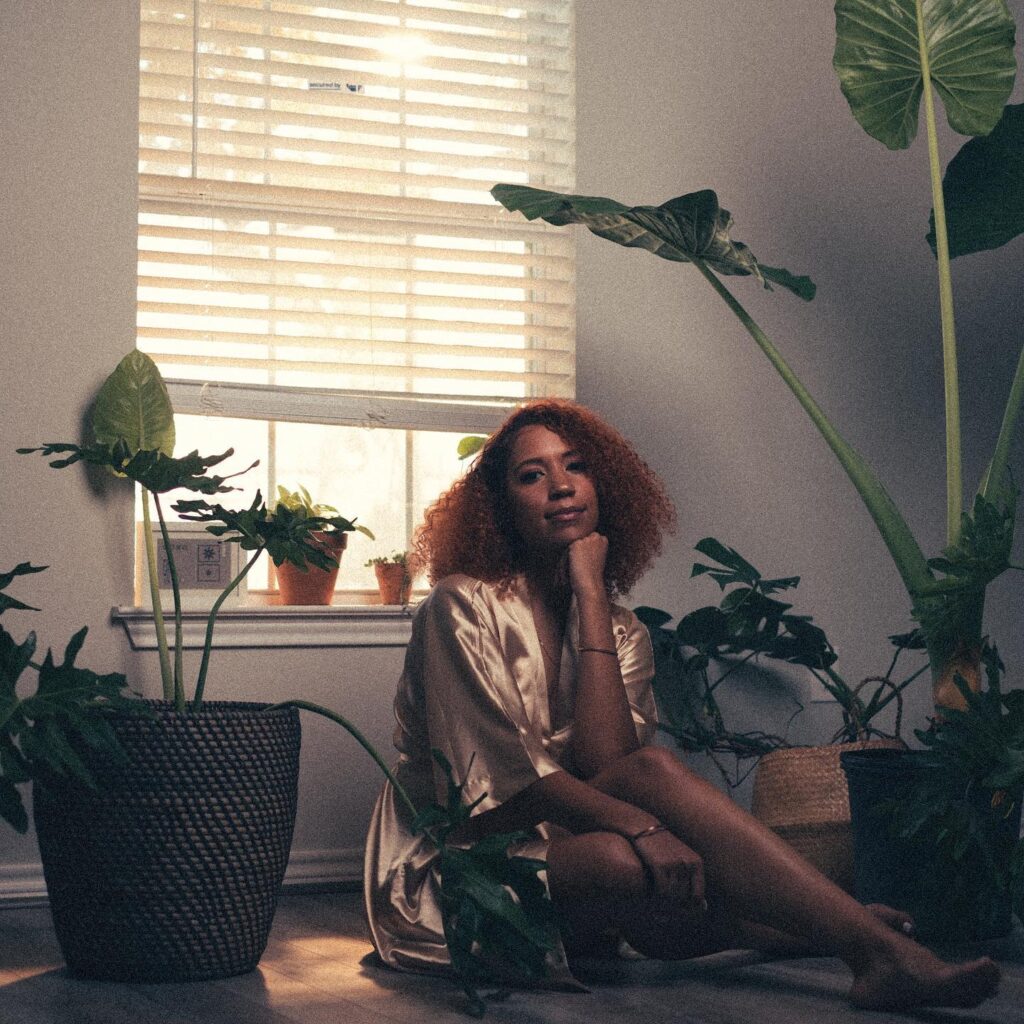
While the bottom line concerns for the tours lay elsewhere, Sol did find that personal expenses added up.
“Ubers and Lyfts, those get pretty pricey. If you’re on the West Coast, they’re definitely higher. We would like try to do things collectively so we didn’t have to take so many. We also had a rental car times three, [it]was a few hundred. We would have it for like two or three days at a time. It definitely added up. And then plane tickets, a lot of that was label-funded though. It was about 6 to 8 of us that were all flying. So a few thousand there for sure. And the hotels, same thing – a lot of people, the rooms a few hundred. I know it was probably well over like 10 K. And that was just a starting point. We did our best to consolidate and I had merch sales and stuff.”
And that doesn’t include her costs back home.
“That first part of the tour, I still had rent, so I had everything, all the utilities, all the bills at home and had to figure that out. When I’m touring, the wage that I asked for is my living wage, so that way I’m not pressed. That’s something I did learn this past year. That second tour our lease ended [part way] through the tour, so there was one month where we didn’t have to pay rent, which was helpful. But we were trying to apply to all these apartments and stuff on the road, which was a whole thing, you know? The Austin market, it was a doozy.”
And Sol is a mom. With mom and dad on the road, so is the baby.
“You’re wearing all your hats at once and make them all fit. We’re very agile, flexible, and we think quick on our toes. We’re constantly multitasking, so that’s not super difficult. She (her baby daughter) gets on the plane and people will literally be, ‘She’s beautiful, She’s so calm.’ And then we get off the plane and she lets us have it. People come up to me a lot at shows and [say] ‘I don’t know how you do it’. I don’t have an option. I love music. I love my baby. I don’t want to pick. So we’re going to forever make it work.”
And from her vantage point, Sol found her touring experiences touring lucrative and worthwhile.
“On all fronts. From the knowledge that I gained during that time, being able to mentally know I can sing that many days in a row, knowing how to hydrate properly, learning how to basically survive touring. That was all really vital information for me and everybody that was on tour. Financially, it worked out really well for me. I made more touring than trying to work as a musician, work a job and do music. It told me I need to focus more on booking music gigs. And then of course, the networking aspect. You meet a lot of people, you make a lot of connections, you get a lot of opportunities, and it works really well for you. The type of artist I am, I’m very vulnerable. I want to talk to you. I want to meet you. This is why I do this. So being able to tour and talk to people after the shows gave me confirmation that people are vibing with this. That was all like, very much needed for me.”
Yet not everyone is fortunate enough to be a support act on a major tour. And even those that do can find themselves a poorly-paid afterthought. But for a lot of developing artists, it’s a great way to test the waters.
It fulfills our soul in a way that nothing else can, it like scratches an itch that you just can’t get anywhere else. There’s nothing more rewarding [than] connecting with strangers in a way that you would not have otherwise
Jane Ellen Bryant of Jane Leo
When I spoke weeks ago to Jane Ellen Bryant and Daniel Leopold, the musicians who make up the Austin duo Jane Leo, they seemed somewhat tentative about their touring plans. Now, with their debut album released, they seem excited at the prospect of heading out there. Both of them have had prior touring experiences.
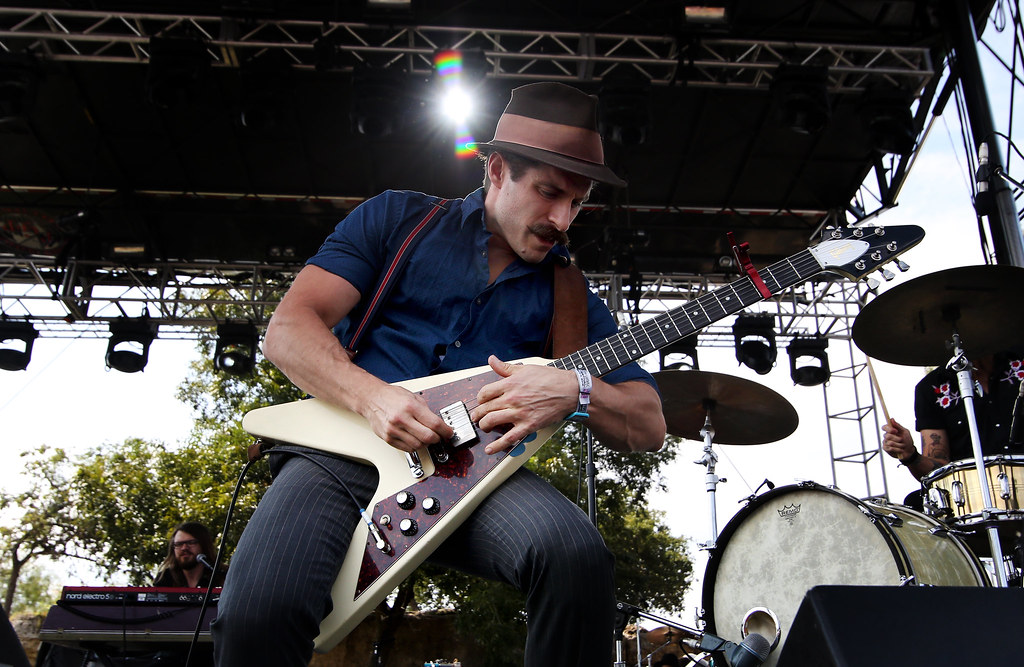
“My previous band,” says Leopold, “were touring 150 days plus a year. Felt glorious. We were touring in a van with a group of dudes going from one spot to the next. The biggest shows were typically opening for other people, so even if we delivered everything that anyone wanted, they’re still waiting for the big bands like, okay, get out of the way. We gained a ton of fans and when you’re on stage in front of a thousand people or more or less, you feel electricity that is incomparable anywhere else. This adrenaline that you’re chasing is amazing. But you get off the road and you’re like, ‘Why am I doing this?’ Because, as soon as it’s over, it’s over, it’s forgotten. Touring has always been daunting, but then with the pause, it [has] made everyone reanalyze. So I think this open letter from Santigold was actually them saying ‘I forgot how hard this was’. If you’re a boxer and you take two years off of fighting and you’re on the couch, or even if you are training for it, you get back in the ring and the fight is more painful than you ever remember it being.”
Bryant’s experiences were different. “I was a solo artist, but I also had a band that was a pretty large band in Austin, so touring was not big for me. I did a few fly-out dates, one with the band, but that’s so expensive. I had not set myself up in a place to really make that possible. I did a tour with another songwriter and we had an agent book us some small gigs, and that was kind of a disaster. [It] ended up being a national park tour because we barely made any money or we lost money and we, you know, just ended up well, ‘We might as well enjoy the scenery’. I also had toured as a background singer, and that was very different because that was with an artist who was on a major label. And so, you know, we were in hotel rooms every night. But looking back at that, that must have been just a massive expense. I don’t see how they would have actually made any money. So with Jane Leo, we’ve really tried to pare down our expenses. We’re just a duo on the road. We’ve really tried to reframe how we’re going to be able to do this because you’re taking on so much, and we really want to do it in a way that’s sustainable. You know, it is a punch in the face, I think. But it’s worth it. It’s a lovely punch in the face at the same time.”
“The party’s back,” says Leopold. “Everyone has a tour coming up and it’s so cool to hit up old friends and say, ‘We see your touring, we want to tour’. A lot of Austin artists have always been good about that, taking local bands out there with them. You get out there and you really want to show what you got, what you’re made of, what you’ve been training for. We’ve been doing nothing but sitting on the couch. We’ve recorded two albums in the past three years and we’ve been working nonstop with the outfits and the songs. Paring it down to two people has been a huge learning curve.”
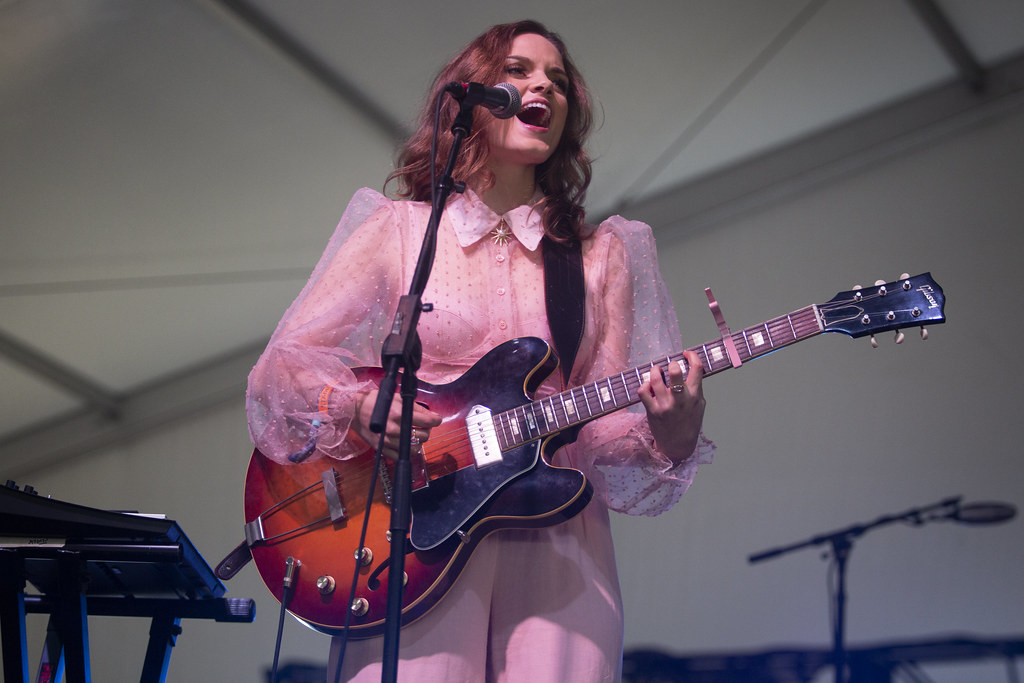
And they both are ready to roll.
“The benefit,” says Bryant, “is that it fulfills our soul in a way that nothing else can, it scratches an itch that you just can’t get anywhere else. There’s nothing more rewarding [than] connecting with strangers in a way that you would not have otherwise if they had not seen you and connected with your song. Standing behind the merch table after a show is my favorite part because you meet so many awesome people. If I were sitting at home on my couch, or even playing in the same venues all the time in my hometown, I wouldn’t have those experiences. There are so many ways to grow as an artist now, especially social media. But there’s nothing like being in the same room with total strangers, connecting, and having that energetic experience. You cannot have that through a screen. I’ve played many Zoom shows in the last few years and it is not the same as making that connection.”
There’s no doubt that touring can be an intoxicating and enriching experience. There are plenty of bands – roadhogs – who stay out there and survive and prosper. But it’s also true that things have never been more stacked against musicians. With streaming all but eliminating album sales revenue, the road becomes a lifeline few can afford to ignore. Fans are as hungry for music as they have ever been. Yet the logistics – the rising costs, the mental hardships, the unexpected setbacks, the shrinking number of venues attuned to the touring circuit – can be hard to overcome. It’s tough out there. Acts at all levels have come home defeated.
It would be nice if the US, like other countries, had more artistic funding and grants, helping artists not only on the road but with the costs of living at home. But with Congress mired in how to pay our existing debts, that seems unlikely to happen anytime soon. Some effort was made to bail out venues during the pandemic, whose existence was just as imperiled as that of musicians. Those that survived are getting back on their feet as well.
One thing is certain. The artistic spirit, and the human need for it, are too strong to let anything stop it. Musicians are hungry to connect, and the fans can’t wait for it to happen. It may be increasingly more challenging, but history has told us nothing will stand in its way.
“I want to make connections in Canada and Europe, in Portland and Maine, whatever,” says Bryant. “I don’t care. That’s what makes me feel alive.”
